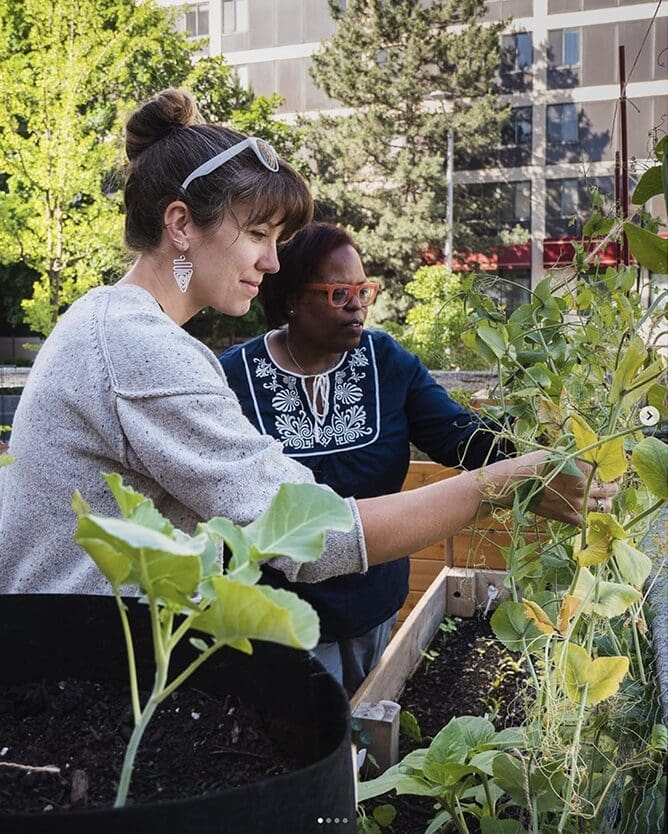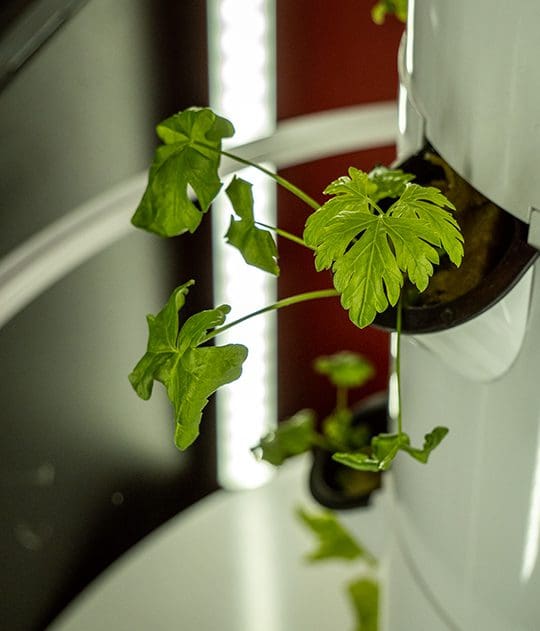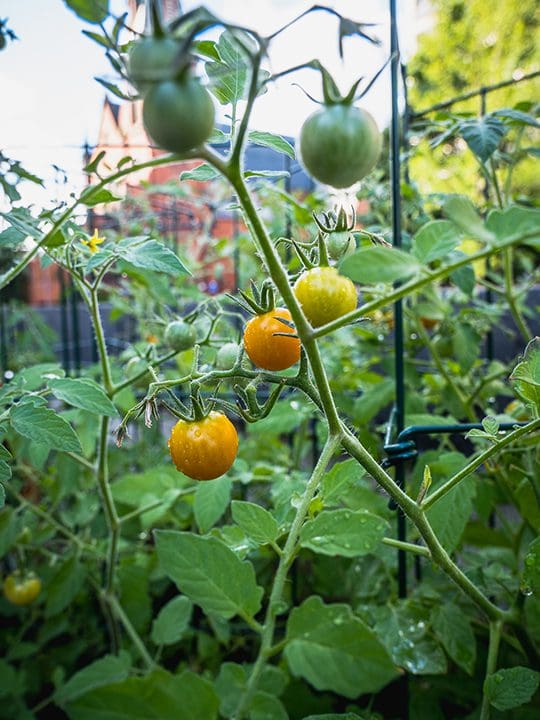Search Posts
Recent Posts
- Dr. Rosemary Costigan Named President of Community College of Rhode Island June 19, 2025
- RI Veterans: Did you know? 19.06.25 (Military Funerals, Job Fair, Benefits, Events) – John A. Cianci June 19, 2025
- East Providence First in U.S. to Equip All Firefighters with PFAS-free Gear June 19, 2025
- We Cook! Mill’s Tavern Saffron Bouillabaisse with Tarhana Lobster Jus June 19, 2025
- Rhode Island Weather for June 19, 2025 – Jack Donnelly June 19, 2025
Categories
Subscribe!
Thanks for subscribing! Please check your email for further instructions.

Master Gardeners up on the roof at Providence Public Library
Photo, top: URI Extension Master Gardeners Kate Aubin ’06 (left) and Beatrice Pulliam (right) are using their Master Gardener training to create a green escape — and community harvest — at Providence Public Library.
Plant and tree books are always among the most popular in any library’s children’s collection. The Secret Garden and The Giving Tree are time-honored classics for good reason, tapping into that desire we all have to find a peaceful oasis and escape reality, if just for a bit.
In downtown Providence, two University of Rhode Island Extension Master Gardener volunteers on staff at Providence Public Library (PPL) have brought those literary classics to vivid life, creating a green escape — and community harvest — in the middle of the capital city.
On Empire Street downtown, passersby on the street may not even realize a rooftop garden is flourishing overhead. It’s one of many surprises to be found in the historic library, which was recently renovated. The idea for the 16×20-foot garden was supported by a grant from the Rhode Island Office of Library & Information Services. Students in PPL’s teen program helped design the garden, which hosts a variety of workshops and public events.
Though located downtown, the Library aims to provide transformative experiences for all Rhode Islanders. “We are considered the state’s public library,” says Beatrice Pulliam, PPL’s Technology & Information Services Director, and one of its lead gardeners. When she is not planning new technology services for the public or doing research related to the library’s digitized whaling logs, you might find her staking tomatoes or watering plants in the Library’s fourth-floor garden. Pulliam, also a librarian at PPL, has curated several gardening programs for the library over the last few years, including a visit to the Herbarium Lab at Brown University.
Pulliam’s journey to the Library’s garage roof actually started with one of those workshops. “A few years ago, we had a program for community members to learn about gardening,” she says, led by URI Master Gardeners. “I just kind of got hooked.” Inspired, Pulliam helped start PPL’s distinctive seed catalog (The Louise and Larry Moulton Seed Catalog) and was accepted into the Master Gardener program, graduating in 2018. Today, she serves in multiple leadership roles, welcoming in new participants and serving as the Roger Williams Park edible forest garden project co-leader for the program.
Pulliam also readily joined the program’s initiative to encourage Master Gardeners to “donate a row.” Pulliam decided to direct the bounty of the Library garden to Better Lives Rhode Island, a longtime social services fixture downtown. The agency’s Downtown Food Pantry serves over 4,500 people each month and is one of the largest food pantries in the state, serving people in all of Rhode Island. In 2021, over 30,000 pounds of vegetables grown by URI Master Gardeners were donated to the Rhode Island Community Food Bank and other agencies, with a similar total expected this year.


Pulliam says community gardening initiatives also make the Library more inviting and accessible to neighbors and residents from under-represented communities, making PPL a more inclusive and welcoming space for all. A garden can do that, she says. Even if English is not someone’s first language, gardening provides a universal language of connection, across races, cultures and economics.
Although PPL’s gardens are new, the Library has always been a leader in progressive innovations, from pioneering open stacks and an information desk, to spearheading nationally-recognized children’s learning initiatives, to implementing online technologies and a statewide catalog. More recently, PPL’s newly renovated spaces feature a makerspace Workshop, including classroom spaces and a recording studio.
Pulliam is joined in gardening at the Library by her colleague Kate Aubin ’06, a URI graduate and fellow Master Gardener (2014). Aubin helps maintain the Library’s busy hydroponic garden and is PPL’s Head of Youth Services. “I’ve always loved growing my own food,” she says. “I am passionate about food and environmental justice and always looking for learning opportunities in these areas.”
Aubin came to her work at the Library as an educator. She received her bachelor’s degree in journalism from URI, then her secondary teaching degree at Rhode Island College, and finally a master’s degree in social innovation and sustainability from Goddard College, focusing on youth and their connection to place and nature.
Before arriving at PPL, Aubin worked at a hydroponics facility in Central Falls, Acopia Harvest. “I definitely prefer growing food in the ground,” Aubin admits, “but the reality is that we live in New England and 4 to 5 months of the year it’s too cold to grow anything outside without a greenhouse.” With the lack of accessible, affordable farmland in Rhode Island and climate change impacting the growing season and bringing extreme temperature fluctuations and unpredictable weather patterns, Aubin said hydroponics and aquaponics should be part of the state’s food-growing future.
“Being able to grow indoors allows us to grow produce year-round,” says Aubin. “At the Library, we can also teach our patrons different growing methods and use the garden to explore STEM-related concepts.” PPL Youth Services staff teach students to compare growing methods (soil versus water, sun versus LED bulb), discuss pH testing of water, learn which nutrients plants need to live, and more.
The hydroponic garden gets plenty of attention on the Library’s ground floor, both from patrons and passersby on the street. The tower gardens in the Workshop hold 20 plants each. Leafy greens and herbs do well, and the pepper plants just pop. “Everyone who sees the plants is so impressed by how big the plants can get!” says Aubin. “The kids are always wowed when we show them the root system of the hydroponic plants which can get very long.” As one of the state’s first public hydroponic gardens, it’s often the first time that visitors are seeing hydroponics at work and up close.
The hydroponic gardens are maintained by young people in the Library’s STEM Advantage program, led by PPL’s Early Childhood Educator Anne Kilkenny, which teaches 6- to 10-year-olds concepts like engineering, water conservation, and animal science. The young gardeners start and transplant seeds, test the water weekly, and add nutrients and water as needed.
“Having plants in indoor spaces just makes people happy,” Aubin says. “Many studies have shown the calming effect plants have on people. The units are also great conversation starters. Everyone who walks by asks what’s being grown and how it works.”
The hydroponic garden also directs its bounty to Better Lives’ food bank, half a mile away, from basil and kale to peppers and tomatoes.
“Gardens are places where people can find and share expertise in common,” says Pulliam. “Gardening is a neutral, level activity, and a natural way to exchange information, ideas and knowledge. I hope programs like this help us be seen as a place where anything can happen, where our doors are open, and we’re a welcoming, safe space.”
Follow the Library’s gardens on social media at @providencepubliclibrary.
Learn more about the Master Gardener program or apply for training. Applications for the next Core Training course are due November 1.
Find more
https://www.loc8nearme.com/rhode-island/providence/rhode-island-community-food-bank/5713895/
___
